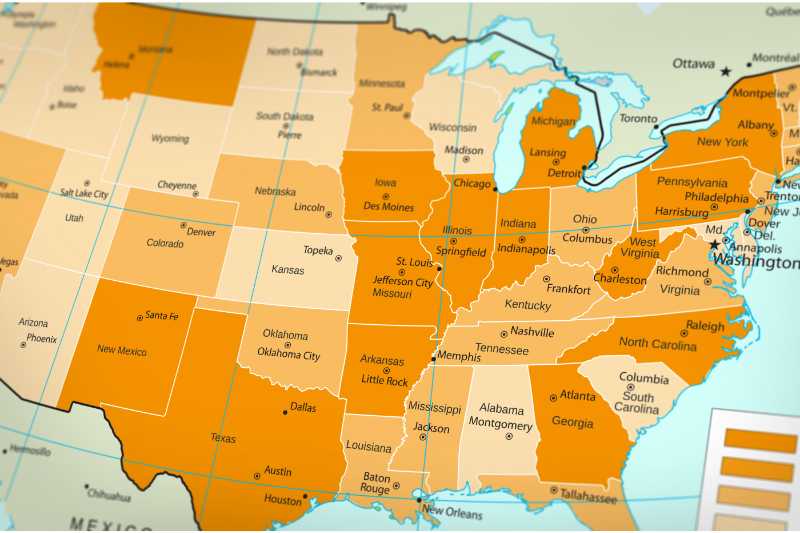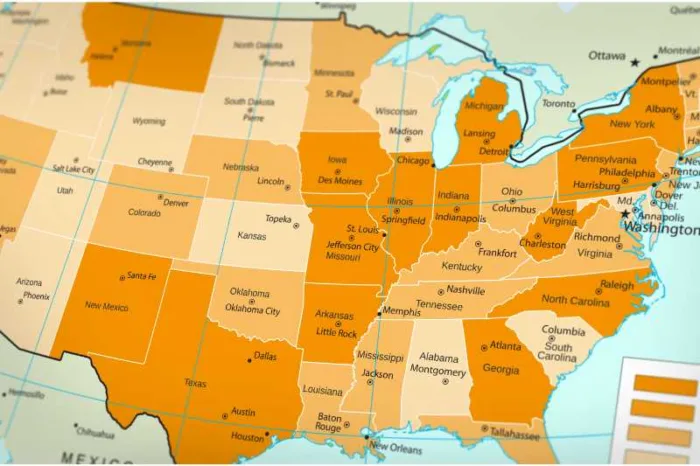
When investing in real estate, you can’t always find the perfect property that’s located in your home state. But that’s okay. Successfully managing a rental property out of state isn’t nearly as complicated as it may seem. With the right property management strategy, your property’s performance and earning potential won’t be compromised at all.
In this guide, we’ll go over the difficulties of managing a rental property in general. Next, we’ll provide seven tips for how to manage investment property while living out of state.
This post covers:
How hard is it to manage a rental property?
Managing a rental property can be challenging. The bigger the property, the more challenging it can be to manage.
Managing a rental property can be made easier if you:
- Effectively market your property.
- Hire an experienced property manager or property management team.
- Create a property maintenance plan.
- Upgrade your property’s amenities.
- Prioritize resident satisfaction (and retention).
- Stay up to date with property management trends.
- Network with other property managers.
- Embrace modern technology for all aspects of the property management process.
Learn the difference between a condo and an apartment:
What is the best state to be a landlord in?
When it comes to the best state to legally be a landlord, Texas is one of the most friendly. This is because of strict laws regarding lease violations, with courts often siding in favor of owners.
However, this doesn’t mean Texas is the best state to own a rental property in. Favorable rental laws also aren’t a very important factor when it comes to successfully managing a rental property out of state.
How do I manage a rental property out of the country?
Managing a rental property from a different country isn’t all that much different from managing a rental property out of state. A significant number of rental properties in the United States are owned by foreign investors. If you manage a rental property in another country, our tips below will all apply.
The most important takeaway is to familiarize yourself with the specific rental laws of the country where you own property. They may be wildly different from current legislation where you live.
How do you manage a rental out of state?
Owning a rental property out of state means you can’t swoop in and personally handle any issues that might arise onsite. In addition to finding people to rely on, you must make sure that there are systems in place in case something goes wrong. Planning ahead and putting an effective system in place is key, and our tips below will help you to accomplish this.
Here are 7 tips for managing a rental property out of state:
- Hire a trustworthy property manager
- Familiarize yourself with local laws
- Get organized
- Embrace technology
- Automate rental payments
- Be available
- Visit the property
1. Hire a trustworthy property manager
Since you can’t physically manage your property on-site, you’ll want to consider hiring a property manager. A property manager will oversee the day-to-day needs of your residents. They’ll respond to and monitor any problems with residents and the building itself. Property managers can also market available units in your property and find new residents. In short, property managers are the ones you can delegate the vast majority of your work to.
However, property managers cost money. Depending on how profitable your property is, you may or may not be able to afford one.
Because your property is unique, you can create the job requirements for your property manager as necessary.
For example, if you need somebody to come by on a monthly or bi-monthly basis to inspect the property for maintenance, then this property manager will be much more affordable than someone involved with the property on a daily basis. The size and scale of your property have the greatest impact here when managing a rental property from out of state.

How to find an out-of-state property manager
Are you looking to hire a property manager while living out of state? If so, you have a few options.
You can find an out-of-state property manager by:
- Networking. Other owners will have the inside scoop on property managers that they trust.
- Searching online reviews. Many property managers have LinkedIn profiles and online resumes that you can examine to see if they’re a fit for your property.
2. Familiarize yourself with local laws
The state you currently live in and the state where your rental property is located might have completely different laws.
States can have different laws regarding:
- Landlord and tenant rights
- Insurance requirements for rental properties
- Maintenance requirements
- Disclosure notices to residents
- Heating/cooling requirements
- Building accessibility
Always consult legal professionals when managing a rental property from out of state.
3. Get organized
Whether close or afar, organization is a priority for managing a rental property. You’ll want to create organized notes that help you stay on top of your property’s operations.
Your notes should include:
- Details on residential leases and when residents’ leases are up for renewal.
- Your maintenance and preventative maintenance schedule. This includes information about parts of your property that might need future maintenance, such as your roof.
- A list of emergency contractors as well as trusted contractors.
- Payment schedules for the property, staff, and contractors.
- Seasonal requirements for the property.
4. Embrace technology
Modern technology can virtually put you in your building even if you live across the country. With smart technology, you can offer your residents a number of amenities that both give them more incentive to rent with you and offer you ways to monitor your building.
A smartphone-powered access control system is the most impactful technological upgrade you can purchase. With a mobile access control system, you can monitor building entry events and adjust residents’ access permissions from anywhere.

5. Automate rental payments
Give your residents the option to pay their rent through an online platform available on your property’s website. This allows you to monitor payments and eliminates the need for residents to send you checks via mail. A virtual record of rental payments is also much easier to refer to for tax purposes.
6. Be available
The simplest tip in our list is also the most important: Be available for your residents and property manager to contact at any time of day.
If you aren’t available for whatever reason, be sure to follow up as soon as possible. In addition to addressing whatever issues may arise, this also allows you to foster a relationship based on trust and respect with the people that allow your rental property to be profitable.
7. Visit the property
You don’t have to visit your property often (or even yearly), but you should visit every now and then. No matter how brief your visit is, getting a firsthand look at your property and the neighborhood it’s located in has a lot of value. This is especially true if it’s been a long time since your last visit (or if you’ve never been to the property in the first place).
You could be inspired to make renovations and upgrades, or you could discover that your property manager has run the place into the ground. Either way, there’s value to visiting your property that will help you manage it more effectively.
Takeaways
- Managing a rental property can be difficult without dedicating time to research and planning.
- Out-of-state rental properties require a lot of foresight and detailed management.
- Tips for managing a rental property out of state include hiring a trustworthy property manager, getting organized, and embracing modern technology.






